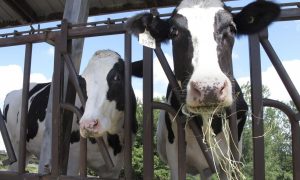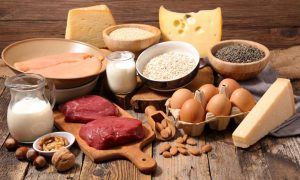
Vermont Agriculture continues to grow and adapt. Farmers and all those who help they put food on our table are a creative and resilient force. No matter what 2022 threw at them they were up to the challenge. All were facing inflation and labor issues, but Vermont farmers continued to produce high quality food for our region and the nation. This effort does not happen without a strong commitment from many hands.
Agriculture faced strong head winds with substantial increases in the cost of feed and fuel, but we continued to rally. For example, organic dairies stared down menacing 50% increases in the cost of feed because of supply chain issues. While Vermont was able to stand up a $200,000 granting program to help with on-farm needs to meet the demands of new markets, unmanageable day-to-day costs remain. Working with regional partners, the Agency appealed to USDA to see if the federal government could offer support. We hope good news will come soon.
Vermont made record investments in our rural communities. This investment will be making their way to farmers, producers and those making their living off the land in 2023. Many of the policies were proposed by the Governor’s Future of Agriculture Commission. The Commission suggested investing in food related businesses so they could grow and feed more Vermonters and those in the region. A $40 million dollar program led by the Agency of Commerce and Community Development will issue grants to businesses that need to invest in new infrastructure. For example, these investments could help with storage, distribution, waste management, and meat processing for Vermont companies. We have already seen one slaughterhouse receive substantial funding from this program as well as USDA and the Vermont Working Lands Enterprise Fund. Construction is underway and we look forward to more projects like this in 2023.
The Working Lands Program also will help farmers, producers and those who work in the woods. More than $3 million dollars will support farmers and producers so that they can make food more affordable. The Working Lands Program is proven to grow Vermont’s rural economy while producing products. These dollars will be distributed in 2023, which is great news for a more robust food and forestry system.
The Commission also proposed investing in more technology to help dairy farmers manage their businesses. This could mean upgrades to help with manure management, milking equipment or infrastructure. The Northeast Dairy Business Innovation Center is committed to this priority. The Center housed at the Vermont Agency of Agriculture recently awarded more than one million dollars to dairy farmers to improve their on-farm milk storage and handling. We hope to have a second program in 2023 to protect farmers’ milk and support tremendous needs related to milk storage, cooling, refrigeration, and processing of dairy. We encourage all those working in dairy to follow the Northeast Dairy Innovation Center. We are working closely with processors and farmers to support this important industry in Vermont and our region.
This year a special focus emerged to support and attract the next generation of young farmers. Working with the Vermont Housing and Conservation Board, the Agency will deliver a report on recruiting and supporting youth in agriculture. We spent the summer talking with many partners on this important issue and we will be working with the legislature on next steps in 2023.
Farmers are also coping with climate change. They stand ready to help improve the environment by implementing Climate Smart Farming. The Agency’s budget includes spending nearly $5 million dollars more on agronomic practices that mitigate climate change. This includes planting more cover crops and improving soil health, such as reducing phosphorus losses from agricultural fields. The budget also includes dollars for the Payment for Ecosystems Program, which protects environmental health, rewards farmers for helping protect our collective environment, and provides performance-based payments to Vermont farmers. This $1 million dollar program creates a pilot that could reward farmers for best practices that improve the environment and the climate. It will be an important year for these pilot programs as those dollars reach the field.
The Agency’s lab in Randolph continues to support all our state agricultural programs. The lab protects consumers and ensures the health and safety or agriculture and water quality programs. We also are supporting other agencies like Education and Agency of Natural Resources when they need our expertise.
Also in 2022, we made significant investments in food security programs, farm-to-school programs, early educator grants, and child nutrition investments in our schools. This approach means all Vermonters can benefit from healthy, nutritious food and a robust local food system.
It was a great year for Vermont maple. After a few down years due to weather, sugarmakers produced a significant crop. Vermont continues to lead the nation in maple production with more than 50% of the syrup produced in the United States coming from Vermont maple trees. We continue to support this important and growing sector and have added staff to the agency to offer marketing and technical support. We also have employees working on compliance and quality issues ensuring integrity remains a high priority for those producing and selling Vermont maple.
These commitments to Vermont agriculture underscore its importance in our everyday lives. We are grateful for the support of Vermonters, farmers, producers, and those working in Montpelier and Washington. There is much work to do but our approach creates opportunities, while helping feed the region and keeping our land in production. We are grateful for all your support and look forward to a healthy and prosperous 2023. Happy New Year
Best,
Secretary Anson Tebbetts























